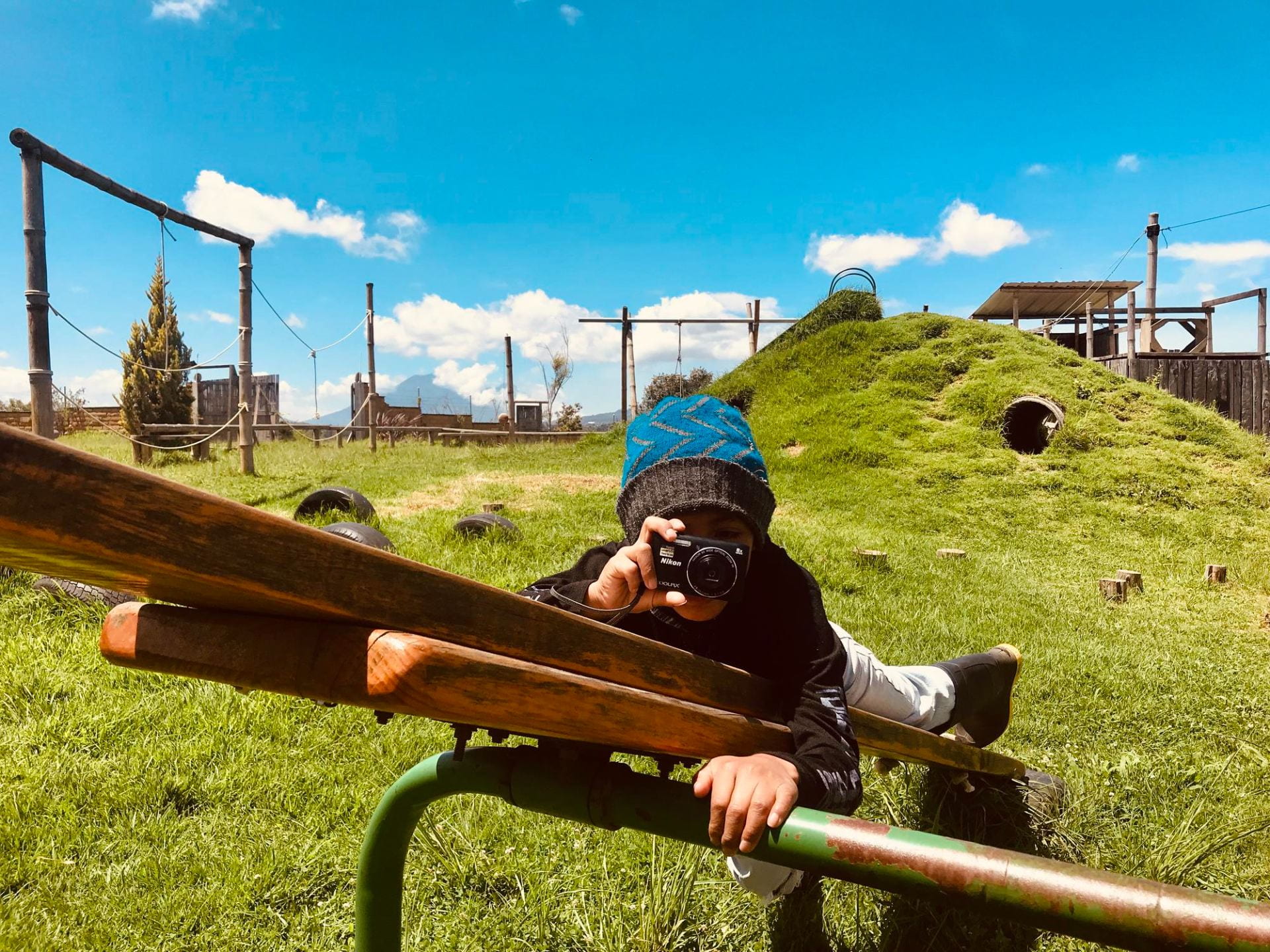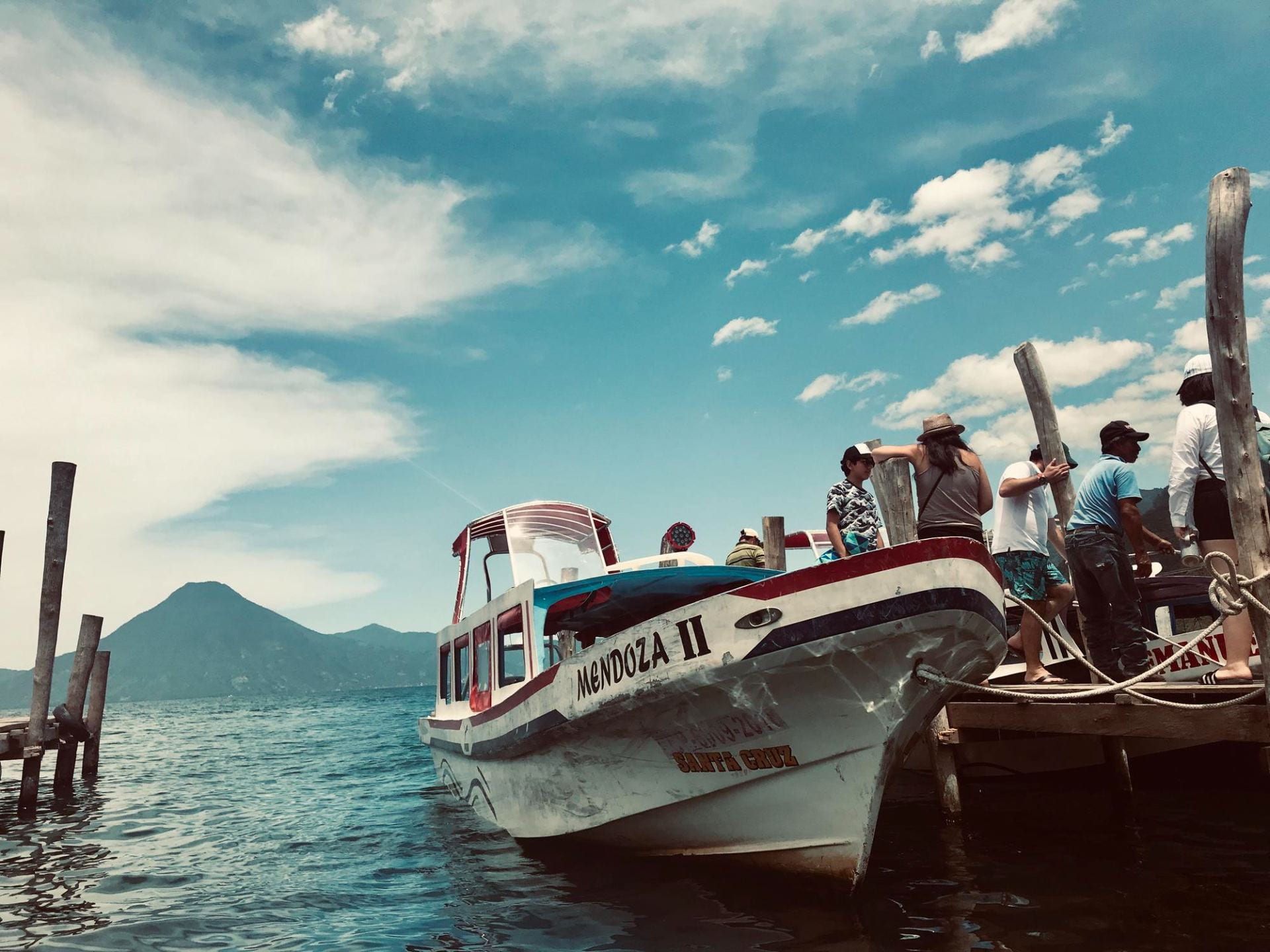
About the Author
Constance Bourguignon is a senior in Eliot House pursuing a joint concentration in Romance Languages and Literatures and Studies of Women, Gender and Sexuality along with a secondary field in Educational Studies. She is originally from Montreal, Quebec, Canada. Read her student view here.
Photo Essay from Guatemala
I wished to make the most of the countless opportunities Harvard offers to explore other countries and experience various education systems around the world. After having visited Namibia, China and France, I made my way to Guatemala last summer to teach dance and arts at Project Somos, a non-profit elementary school serving underprivileged children in the Mayan village of Chibaraval.
On a weekend trip, I visited the Cerro Tzankujil Nature Reserve and snapped this shot of a man fishing under the silhouette of two volcanoes. The picture was awarded the David Rockefeller Center for Latin American Studies Prize as well as the “Elevated Risk, Elevated Reward” Prize from Harvard Global Support Services at the annual OIE Photo Contest in February.
More Student Views
Puerto Rico’s Act 60: More Than Economics, a Human Rights Issue
For my senior research analysis project, I chose to examine Puerto Rico’s Act 60 policy. To gain a personal perspective on its impact, I interviewed Nyia Chusan, a Puerto Rican graduate student at Virginia Commonwealth University, who shared her experiences of how gentrification has changed her island:
Beyond Presence: Building Kichwa Community at Harvard
I recently had the pleasure of reuniting with Américo Mendoza-Mori, current assistant professor at St Olaf’s College, at my current institution and alma mater, the University of Wisconsin-Madison. Professor Mendoza-Mori, who was invited to Madison by the university’s Latin American, Caribbean, and Iberian Studies Program, shared how Indigenous languages and knowledges can reshape the ways universities teach, research and engage with communities, both local and abroad.
Of Salamanders and Spirits
I probably could’ve chosen a better day to visit the CIIDIR-IPN for the first time. It was the last week of September and the city had come to a full stop. Citizens barricaded the streets with tarps and plastic chairs, and protest banners covered the walls of the Edificio de Gobierno del Estado de Oaxaca, all demanding fair wages for the state’s educators. It was my first (but certainly not my last) encounter with the fierce political activism that Oaxaca is known for.








